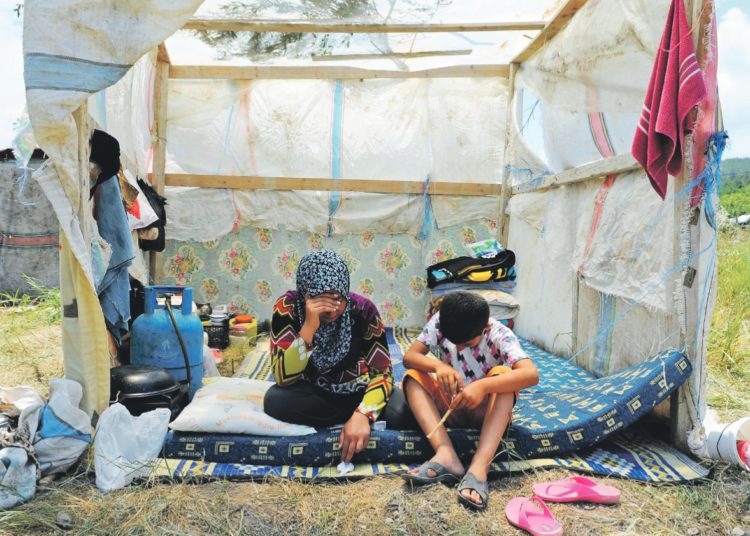Nordic Monitor
European Union leaders have once again appeared to give in to the blackmail of Turkish President Recep Tayyip Erdoğan, who threatened to flood Europe with migrants if no funds are given to his government.
Just about three months before the end of a Turkey-EU refugee deal under which the EU promised Ankara €6 billion for the 2016-2019 time period in exchange for stronger controls on refugees leaving Turkish territory for Europe, Erdoğan raised the stakes to increase his bargaining power and milk more funds from EU countries, where migration has become a leading topic of discussion in the national parliaments.
The recent public statements of Erdoğan, who vowed to open the border for refugees seeking to go to Europe, revealed that the Turkish president is pressuring the EU to extend the deal for additional billions of euros. The recent number of arrivals in the Aegean islands indicates that Erdoğan has already put his plan into action, with the number of monthly arrivals in Greece jumping in August to about 7,000, the highest in three years.

“We will be forced to open the gates. We cannot be compelled to handle the burden alone,” the Turkish president said at his party convention on Thursday, stressing that he would open the border gates to allow migrants to cross into EU territory. “We have not been able to get help from the international community, namely the EU,” he said, claiming that Turkey had spent $40 billion supporting Syrian refugees who took shelter in Turkey in the midst of a civil war in their country and accusing the EU of failing to live up to it promises.
The latest comments from Dutch Prime Minister Mark Rutte and Greek Prime Minister Kyriakos Mitsotakis signaled that the EU is considering cutting a fresh migrant deal with Erdoğan.

This is not the first time Erdoğan has demanded funds from the EU. In November 2015 he demanded billions of euros from European Commission President Jean Claude Juncker and European Council President Donald Tusk at a meeting held on the sidelines of the G20 summit in Turkey in order to refrain from sending refugees and migrants to Europe. Erdoğan bullied Juncker and said Turkey “can open the doors to Greece and Bulgaria anytime and put the refugees on buses,” a leaked EU memo of the meeting confirmed. Interestingly, this conversation triggered the process that led to the deal in 2016.
German Chancellor Angela Merkel and Rutte met with then-Turkish Prime Minister Ahmet Davutoğlu to discuss the details of the deal at the Turkish Embassy in Brussels the night before the EU-Turkey summit in March 2016. During the meeting Merkel and Rutte, who as Dutch prime minister held the rotating EU presidency at the time, agreed on all the major provisions of the future EU-Turkey deal that was later presented at the summit.
The day after Erdoğan’s threat, Rutte said the deal should be renegotiated, Turkey’s state-run Anadolu news agency reported. Moreover, Greek Prime Minister Mitsotakis signaled on Sunday a possible extension. He said Greece could not rule out a discussion with Turkey in the “spirit of goodwill” at the European level on how to extend the financial benefits of the 2016 deal.
Statements from both sides have also revealed how half the EU’s financial assistance has scandalously evaporated in Erdoğan’s corrupt business system. On Thursday Erdoğan alleged that Turkey had only received some €3 billion of the funds from the EU. However, European Commission spokeswoman Natasha Bertaud denied the allegation. According to the EU, €5.6 billion had already been handed over in order to improve the living conditions and standards of protection for Syrian refugees in Turkey, adding that the remaining balance would be transferred shortly.
On March 18, 2016 the European Council and Turkey reached an agreement aimed at stopping the flow of irregular migration via Turkey to Europe. According to the EU-Turkey statement, all new irregular migrants and asylum seekers arriving from Turkey in the Greek islands and whose applications for asylum had been declared inadmissible should be returned to Turkey. The EU pledged €3 billion in 2016-2017 and another €3 billion in 2018-2019 to Turkey as its part of the deal.













